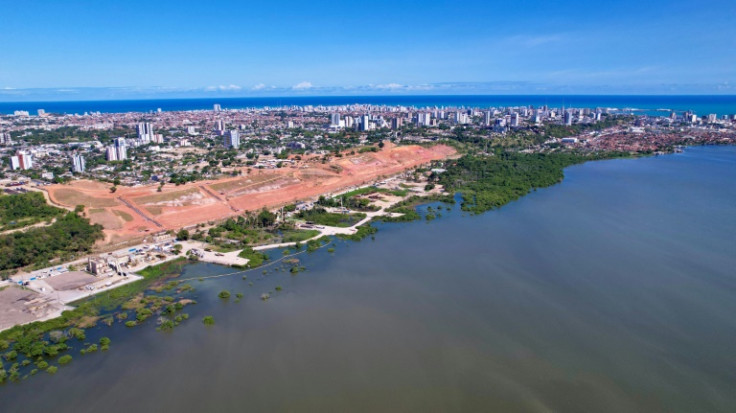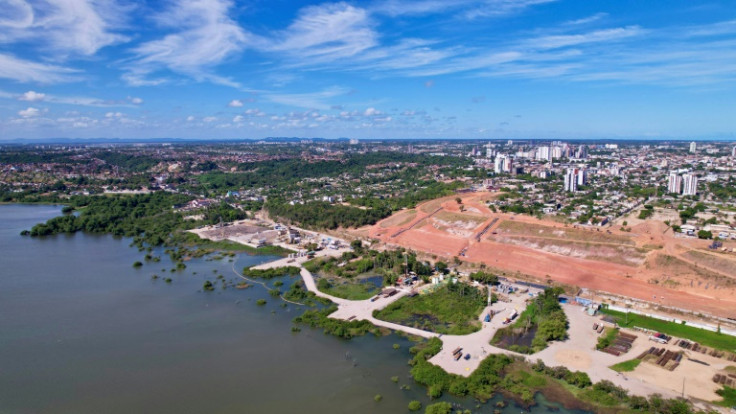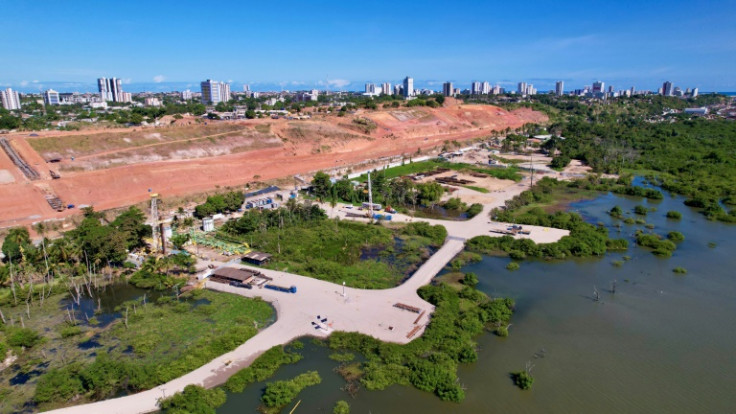Brazil Quake City Families Seek Justice In Dutch Court

Residents from a Brazilian city devastated by earthquakes caused by salt mining went to a Dutch court Thursday, seeking justice and compensation they say is impossible in Brazil.
Families from Maceio flew to the Netherlands to hear the case against Brazilian petrochemical giant Braskem, whose European operations are based in Rotterdam.
Once a city of one million people, life in Maceio has been upended by earthquakes in 2018 attributed to salt mining and subsequent cracks in streets and buildings. The quakes forced tens of thousands to flee their homes.
"What we are living now is hell," community leader Alex Da Silva, 42, told AFP.
"The ones who are left in our community are still suffering sinking (of the earth) and shakes today. We are hoping today for justice, to finally get justice," he said.
Braskem says it has offered financial compensation and psychological support to those affected, as well as help moving house.
The firm says it has paid out 3.93 billion reais ($790 million) in compensation and financial aid to more than 18,000 people.
Lawyers for Braskem argued in court that as the settlement had already been agreed in Brazil, the case in the Netherlands was superfluous.
But Martijn van Dam, a lawyer from Dutch firm Lemstra Van Der Korst representing the families, told AFP: "That compensation program is not full compensation.
"It is an attempt of Braskem to settle things cheap and for that very reason, the claimants have brought a claim to the Netherlands to get full compensation."
Representatives for Braskem declined to comment after the hearing.
The court will first decide on liability, then compensation, if it rules against Braskem.
"That includes material damages, so the houses that they had to leave behind, but also moral damages because they literally lost their lives due to the collapse of the mines of Braskem," said van Dam.
In 2022, the Rotterdam court ruled it had jurisdiction in the case, arguing that its parent company Braskem SA and the subsidiaries in the Netherlands were "inextricably linked".
"Braskem SA could have reasonably foreseen that not only their (Dutch) entities but also the holding company could be brought before this court," the judges said in that ruling.
Maria Rosangela Ferreria Da Silva, a 48-year-old civil servant, said she was "expelled" from her home after the quakes and still suffered psychological problems.
"I hope for justice, because in Brazil, Braskem is the one who holds the cards... And here we feel it's different," she told AFP.
She said her mother had fallen into depression after leaving the house she had lived her whole life. Her health declined and she finally died of Covid.
"I lost my mum because of that disaster," she said.
"But despite any financial compensation, I will never have my mum back... Only someone who has a mother and loses her like this will understand what I'm feeling, how I feel about losing my mum," she said, visibly emotional.


© Copyright AFP 2024. All rights reserved.




















